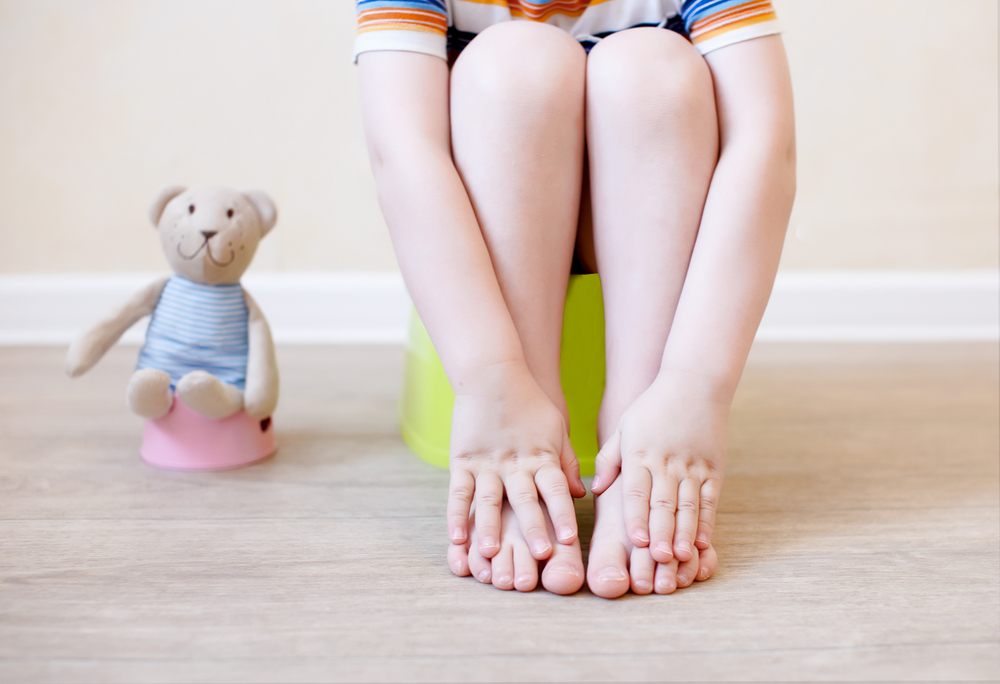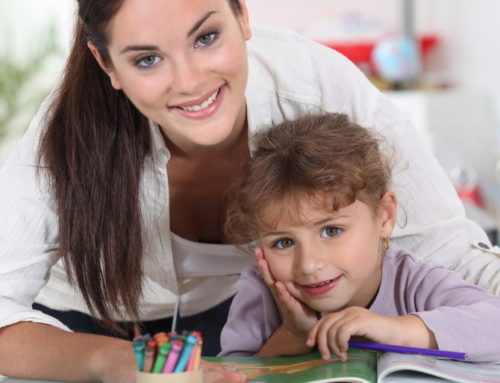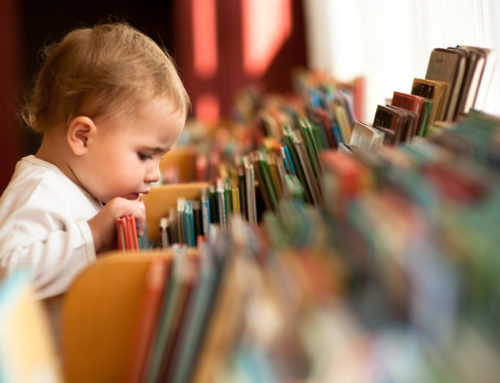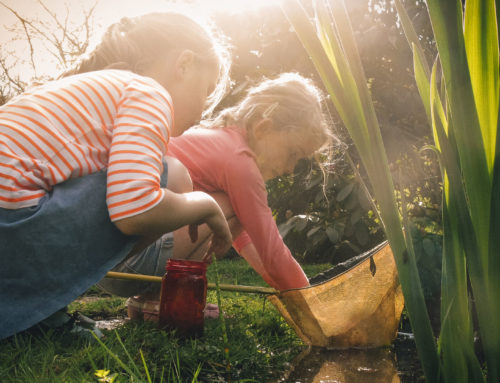As your child grows, you will find them display an increasing need to be independent. “I’ll do it myself” is a very common phrase among toddlers. Rather than discouraging them, it’s important to nurture their independence and ability to take care of themselves. The Montessori toddler guide seeks to help your child complete basic tasks on their own and give them tasks that they can successfully accomplish.
Read on, to learn about the Montessori toddler guide to dressing and toilet training!
Montessori Toddler Guide: The Dressing Frame
At Maria Montessori International Academy, we utilize a dressing frame in an effort to make dressing easier. A dressing frame is a very important tool for toddlers, helping them hone their fine motor skills, especially the ability to grasp and pinch with their fingers. This method allows your child to learn to button, zip, velcro, and snap. In other words, toddlers will increase their dexterity while simultaneously learning the fundamentals of putting on their own clothes.
Skills learned in this method are also effective when it comes time to toilet train. As your child is learning how to use the potty, they need to be able to pull their pants up and down, which includes unbuttoning or unzipping as needed. If, as they learn to use a toilet, they can already complete these tasks, they will gain more confidence using a real potty.
Montessori Toddler Guide: Potty Training
When toilet training, we recommend waiting until your child is able to identify when they need to use the bathroom, and begins showing interest in using the toilet. If you start too soon, you will find yourself getting frustrated, which could end up having the opposite of the intended effect by deterring your child.
This is especially true if you begin to compare your toddlers to others. Every child will hit the milestone of toilet training at their own pace. Your job as a parent is to find what works best for them, not their peers. Children and parents at the Maria Montessori School learn to develop at their own pace. When that learning happens, it’s a truly remarkable sight.
But how will you know if your toddler is ready? If she begins to notice when she is going Nr. 1 or Nr. 2, or tells you when she needs her diaper changed, start to take steps toward the ultimate goal. Another early sign is a decreasing frequency of wetting the diaper. Once it regularly stays dry for a few hours, move forward in the training phase.
In the transition phase, get rid of the changing table, and begin to change all diapers in the bathroom. Then, change your diapers while standing up, which allows your kid to start taking an active part in the process: she can help with the diaper tabs, or pull her pants up and down. When you remove a dirty diaper, sit the toddler on the toilet, even if it’s just for a second. That allows your little one to make the connection between eliminating and the toilet, which will pay off down the road.
Providing Necessary Support
As your child begins to grow more independent, patience and support are everything. You cannot force a toddler to go on the potty until they are ready, and the same is true for learning how to dress themselves.
For your children, getting dressed is a very important step in their development, and allows them to be independent. However, if you are in a rush to go out the door, you may find yourself not supporting your toddler as they try to zip up their own coat. In a hectic moment, you might want to not let them do it for themselves but rather do it for them. In that scenario, it becomes especially important to be patient and give them the support that they need to solve the problem on their own.
As your child learns to get dressed, consider buying shoes with velcro. A toddler doesn’t have the ability to tie their own shoes, and velcro will allow them to put their own shoes on regardless. Giving them clothing they can handle on their own will help you become more patient, and avoid stepping in until they really need you.
The Two-Pronged Approach to Independent Learning
Toddlers are in a crucial phase of their development, and independence is absolutely vital during that phase. The key to success is a two-pronged approach: provide your child with the love and support they need at home, while enabling independent and self-paced learning at an organization like Maria Montessori International Academy.
The result of this two-pronged approach is a growing ability on your children’s behalf to take care of themselves. You’re setting them on a path of learning that they will not leave for the rest of their lives. To learn more about how our methods can help your child with toilet training and dressing, and many other skills that will be vital throughout their lives, please contact us. We look forward to hearing from you!






